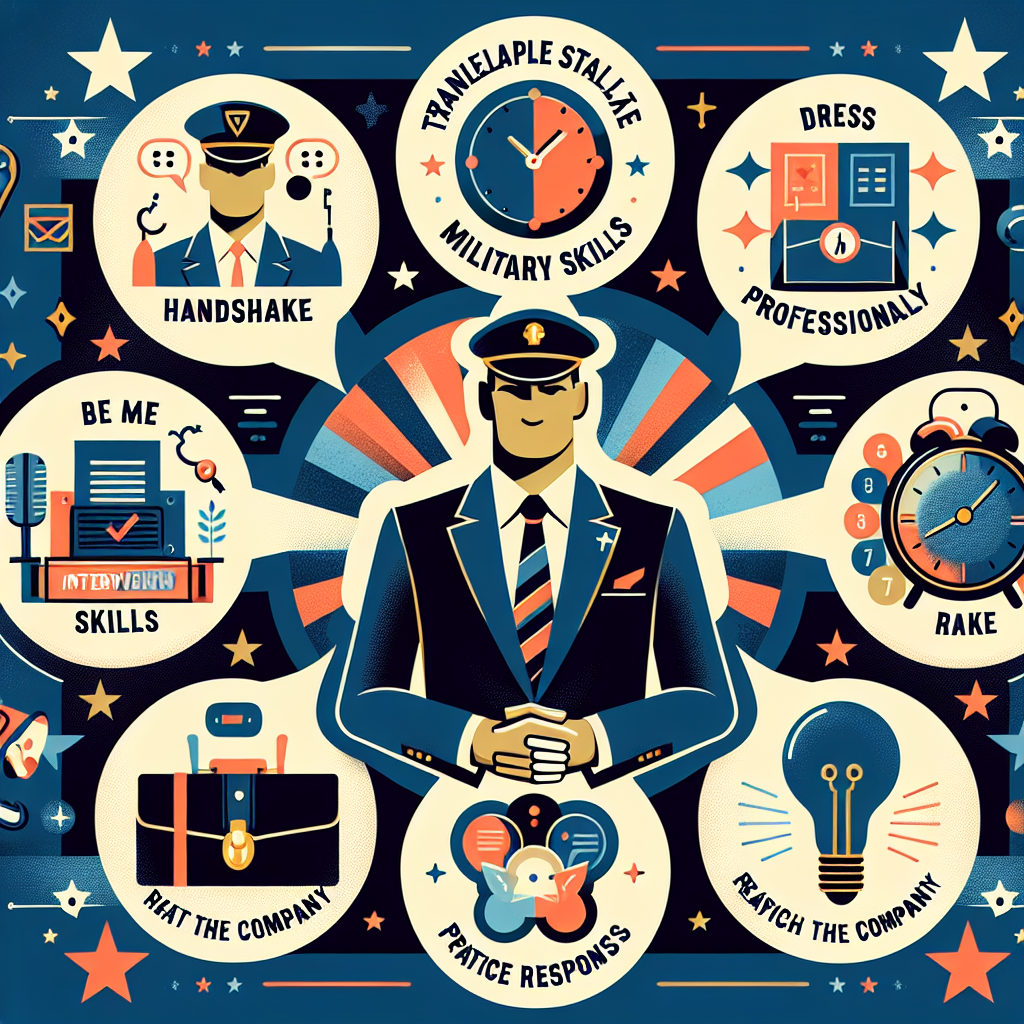Top 5 Interviewing Tips for Veterans: Your 2024 Guide to Civilian Job Success
Meta: Discover proven interviewing tips specifically designed for veterans transitioning to civilian careers. Learn how to translate military experience into corporate success in 2024.
Did you know that according to the U.S. Department of Labor, veterans have a 15% higher interview success rate when they effectively translate their military experience into civilian terms? As a veteran myself, I understand the unique challenges of transitioning from military to civilian job interviews. Let's tackle this mission together with battle-tested strategies that will help you stand out in your next interview!
Translating Military Experience into Civilian Terms
Let's face it, transitioning from military to civilian life can feel like learning a whole new language. The corporate world has its own unique lingo and culture that might seem alien at first. But don't worry, you've got this!
Understanding corporate language and culture is your first mission. Instead of "completing the objective," you'll be "achieving goals." Your "unit" is now your "team." It's all about reframing your experiences in a way that resonates with civilian employers.
When it comes to converting your military achievements into business impacts, think about the bottom line. How did your actions save time, money, or resources? For example, if you managed a large inventory, quantify it in dollars and emphasize your efficiency in managing it.
The STAR method (Situation, Task, Action, Result) is your secret weapon here. Let's say you led a team in a high-pressure situation. Describe the scenario, explain your role, detail your actions, and highlight the positive outcome. Just remember to translate any military-specific details into civilian terms.
Speaking of which, avoid military jargon and acronyms like the plague. Your interviewer probably won't know what an "XO" or "FUBAR" is, so stick to plain English.
Preparing Your Professional Battlefield
Now, let's talk about reconnaissance. Before any interview, research the company and industry thoroughly. Know their mission statement, recent achievements, and challenges. This knowledge will help you tailor your responses and ask informed questions.
Understanding civilian workplace hierarchy is crucial. While it might not be as rigid as military rank structure, knowing who reports to whom can help you navigate the corporate landscape more effectively.
Practice makes perfect, especially when it comes to common interview questions. "Tell me about yourself" isn't an invitation to recite your entire service record. Instead, focus on experiences and skills relevant to the job you're applying for.
Prepare relevant success stories that showcase your abilities. Remember, in the civilian world, it's not just about following orders—employers want to see initiative and creative problem-solving.
Mastering Non-Verbal Communication
First impressions matter, so let's talk about professional dress code tips. Unless told otherwise, go for business professional attire. A suit and tie for men, and a suit or conservative dress for women is usually a safe bet.
You might need to make some body language adjustments. The rigid posture and intense eye contact that served you well in the military might come across as too intense in a civilian setting. Relax a bit, but maintain good posture.
Speaking of eye contact, in the civilian world, it's all about balance. Maintain eye contact to show confidence and engagement, but don't stare—it can make people uncomfortable.
Showcasing Your Leadership and Teamwork
This is where your military background can really shine. Highlight those transferable skills! Leadership, discipline, adaptability—these are golden in any workplace.
Demonstrate your adaptability by sharing examples of how you've quickly learned new skills or adjusted to changing situations. Civilians love this stuff!
When explaining your chain of command experience, focus on how it taught you to communicate effectively up and down the organizational ladder. This translates well to any hierarchical structure.
Don't forget to emphasize your problem-solving abilities. The military trains you to think on your feet and make decisions under pressure—that's invaluable in the business world.
Closing Strong and Following Up
As the interview winds down, it's time to ask some strategic questions. This shows you're genuinely interested and have done your homework. Ask about the company's goals, challenges, or culture.
Express your genuine interest in the position and the company. Enthusiasm goes a long way!
After the interview, follow up professionally. Send a thank-you email within 24 hours, reiterating your interest and perhaps adding any important points you forgot to mention.
Finally, maintain that military punctuality and courtesy throughout the process. Be early to interviews, respond promptly to communications, and always be polite and professional. These military traits are universally appreciated in the civilian world.
Conclusion
Remember, your military experience is a valuable asset that sets you apart from other candidates. By implementing these interview strategies, you're well-equipped to tackle any civilian job interview with confidence. Stay mission-focused, maintain your composure, and don't forget to follow up! Ready to deploy these skills? The civilian sector needs your leadership and expertise!




